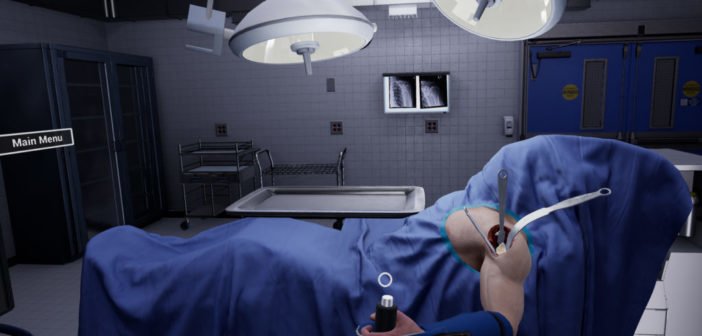Precision OS – The immersive education platform offers students in-depth surgical simulations complete with real-time feedback.
Failing fast and failing often are the best ways to become proficient at a craft. Trial and error is the foundation of education, with people learning most efficiently by identifying past mistakes and resolving not to make them again. Precision OS is here.
While the mantra might hold true for software companies and startups, however, in some industries, failure is not an option.
After 10 years as a surgeon, Dr. Danny Goel understands how important it is for those in the medical profession to get it right the first time. Born and raised in Winnipeg, Canada, the aspiring med-school student started training in his home city before completing an orthopedic surgery residency in Calgary, further specializing in London, Ontario and in Boston, MA. Now based in Vancouver, Goel has dedicated himself to educating new residents alongside his surgical duties. Over that time, he discovered first-hand that although failure is the best way to learn, the stakes are high for surgical trainees.

“One of the expectations with residents in the operating room is that they want to do the procedure,” Goel says. “Morally and ethically, it’s very hard for any educator to sit back and let someone figure things out on the patients. We guide it, but I don’t think that’s the ideal place to learn.”
Goel understood that it would save time and money if would-be surgeons could hone their craft digitally. Realizing that virtual reality could hold the key to transforming how medical procedures are taught, the doctor, together with veteran AAA game designers Colin O’Connor and Roberto Oliveira, built a VR simulator that mimics and enhances what happens in the operating room. They named the company Precision OS.
“Surgical education is not straightforward,” Goel says. “It’s a very complex, dynamic, and effortful skill, and it can sometimes require automation. What we’re trying to do is expand the surgeon’s decision-tree so they can say, ‘Okay, now I know what to do here because of this, and this operation is not appropriate for this patient, and this is how I need to put this implant in.’ When I go to work and see patients, that’s how I think about them, and figure out what the best option is to give them the best outcome.”

Currently, aspiring surgeons are taught by operating on cadavers and by using Sawbones—models of the body made out of plastic. Precision OS, Goel believes, offers a number of benefits over traditional training formats. When learners put on the headset, they are instructed on how to use the hardware and controllers before entering the first level of assisted learning. There, individuals are given basic instruction for specific surgeries, including how to judge the angle of an implant position, before being asked to make their own decisions about the procedure. The student is given immediate feedback about what they did correctly, and which choices were wrong for the virtual patient.
“In real life, we don’t ever get this information unless the patient has a complication,” Goel adds. “That’s why a surgeon will always say they’ve learned the most from the complications they’ve seen and heard because that’s our metric feedback. And that’s only if people choose to report. Sometimes you don’t hear about it because they’ll go and see a different surgeon, or go to a different city or country. And that’s the biggest gap in our knowledge—that we don’t know what we’re doing right or wrong.”
As well as receiving real-time pointers, working on a patient in VR allows surgeons to gather experience much more swiftly than on a cadaver. Precision OS permits individuals to do the same procedure multiple times to improve their skill set. Catering to all levels of surgeon — from new recruits, to experts wishing to stay sharp on less common operations — the software will also, in the future, offer a tool for working experts to upload a patient’s particular CT scans into the 3D platform, and let the specialist analyze the problem in virtual reality before operating.

Juggling his dual role as the CEO of a thriving company as well as working as a practicing surgeon can be tough, Goel says. Splitting his time between the business’ Vancouver office, the hospital, and his home, he chooses to anchor himself at each location he visits. This allows him to give each responsibility his full and undivided attention.
“With everything I’m doing now, which is the clinical side as well as CEO of Precision, the goal has always been the same,” he says. “It’s about how we help our patients. We talk about the Hippocratic Oath and It’s concept of ‘do no harm’—it all ties in nicely together. Precision is not a complete departure from what I do when I’m in the office, because when I’m here, I’m still thinking to myself, ‘What is a surgeon going to learn from this particular technique? How are we going to minimize and avoid a poor outcome for him or her?’ My physical space may be different, but if I’m with a patient and I drop an anchor, I am entirely with them.”
Goel and his teams’ hard work has already begun to pay off. Receiving its Series A funding this week, Precision OS is focused on continuing to iterate its product to adapt to new surgical procedures and techniques.
“Trauma, for example, is one of the leading causes of morbidity and mortality around the world,” he says. “That suggests that focusing of our efforts in this area could impact millions of people. The future looks very promising.”




